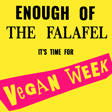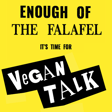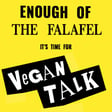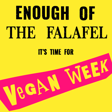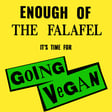
139- Do animal sanctuaries use too many vegan resources?
Saving & prolonging the lives of innocent non-human animals is valuable & heart-warming work. But with tens of billions of animals needlessly losing their lives to human exploitation every year, could the finite resources of the vegan movement be applied more effectively? Ant, Carlos & Mark explore this thorny question in this episode.
Reference is made in this episode to the following source:
https://veganfta.com/2024/01/21/concerns-about-us-animal-sanctuaries-financial-future/
As ever, we love hearing your views on the topics under discussion (or anything else!) so do drop us your thoughts via enoughofthefalafel@gmail.com
*************
Enough of the Falafel is a community of people who love keeping on top of the latest news in the world of veganism & animal rights. With the Vegan Talk podcast, we aim to develop listeners' (& our own) thoughts around key issues affecting veganism & the animal rights movement; giving our opinions, whilst staying balanced; remaining true to our vegan ethics, whilst constantly seeking to grow & develop.
Each week we home in on one topic in particular and pick it apart in more detail. If you have a suggestion for a future show, do get in touch via enoughofthefalafel@gmail.com.
*******************
Thanks everyone for listening; give us a rating and drop us a message to say "hi"; it'll make our day!
Carlos, Mark & Anthony
